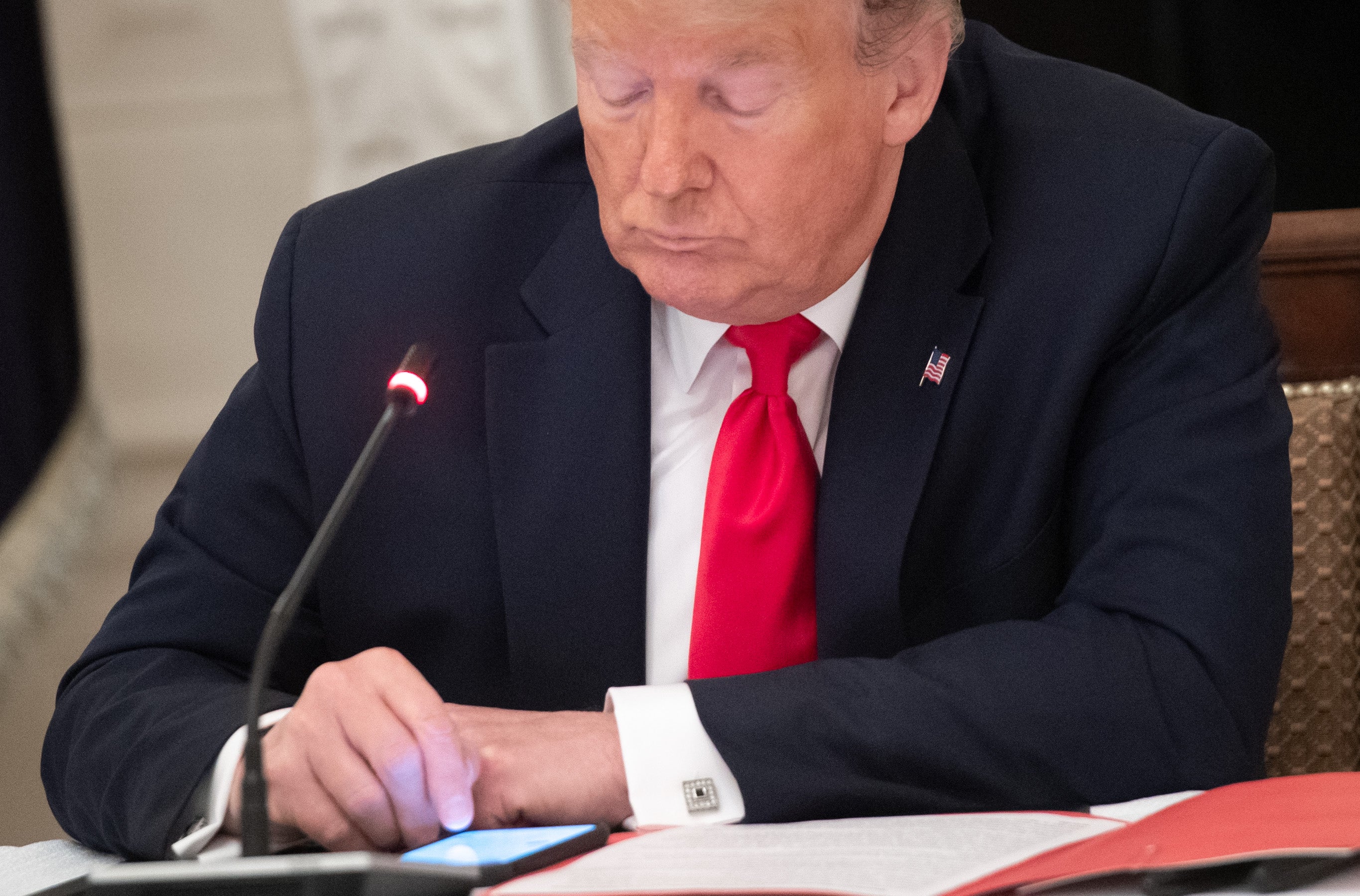The fight between Facebook and Trump is just starting – and this decision will only make it more significant
Facebook’s independent oversight panel says the social media giant must review the decision to ban the former president in six months. Andrew Griffin explains why this is the correct decision, albeit the least satisfying


It was a conclusion that seemed destined to please nobody, and annoy everybody. Donald Trump and his supporters are still upset that he is not on Facebook, his opponents have to wait for another six months to find out if they won, and Facebook has to do some soul-searching.
But the decision taken by the company’s Oversight Board was perhaps the best possible one for the health of our online conversations and the companies who rule over and profit from them. The most upsetting and difficult possible choice could also prove to be the best one.
When Facebook decided to ban Mr Trump – after he praised the rioters involved in an armed insurrection at the Capitol – it was pushed to make a decision it never really seemed to want to make. Urged by all sides to decide whether the president should be allowed to stay on the platform, it did as much as it could to pick nothing, until events forced its hand.
That same spirit of indecision haunted what came after, too. Instead of explaining its choice to ban Mr Trump, it referred it to its recently created Oversight Board, shunting the decision along.
The Oversight Board is an independent organisation – though established and funded by Facebook – intended to act as something of a supreme court for Facebook’s content decisions. Users affected by a contentious ban, for instance, can appeal to the committee, who will decide what should happen – in a binding ruling that affects everyone, all the way up to Mark Zuckerberg.
But Facebook’s referral to the board seemed like an attempt to force the independent body to take the decision on its behalf, and give anyone who complained to Facebook about the ban on Mr Trump someone else to point to.
The Oversight Board, admirably, refused to be a scapegoat. Instead, it pointed the questions right back at Facebook, asking it why it had got to the point of needing to conduct such a ritual in the first place.
It demanded to know why Facebook had taken the decision to ban Mr Trump in the first place, how it fits with the policies and precedents that are publicly communicated, and why it had only given him an “indefinite” suspension that does not actually exist within its own official rules. And it demanded to know how Facebook had got to this point: whether, for instance, it had any role of its own to play in the violence on 6 January.
The questions the Oversight Board asks will be difficult ones for Facebook to answer: until now, it has mostly refused to talk, at least publicly, about how it makes the decisions it does. That stretched from everything from the decision to ban Mr Trump to more complex and technical questions of how its largely mysterious algorithm might push other controversial posts.
That approach of quiet resistance was useful for a company that did what it could to avoid upsetting anyone, and instead pandered to everyone. But the Oversight Board’s decision is the opposite: it asks Facebook to answer the hard questions and take the difficult choices, which is exactly what has always been required.



Join our commenting forum
Join thought-provoking conversations, follow other Independent readers and see their replies
Comments